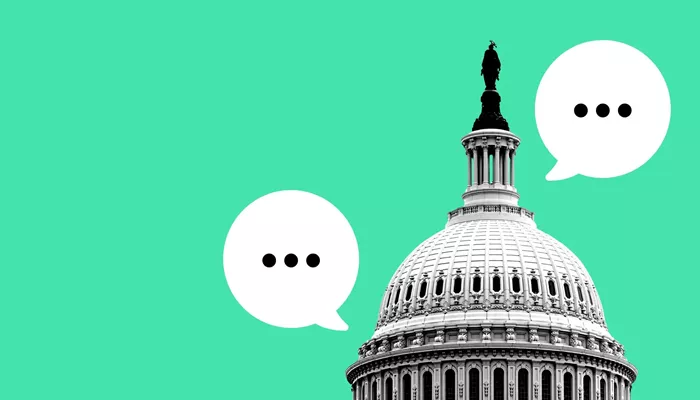On Thursday, key members of the House of Representatives, alongside three Democratic lawmakers, introduced a new bill aimed at establishing clear regulatory guidelines for the digital asset market.
Key Details: Significance: The cryptocurrency industry is often compared to the “Wild West,” but veteran industry experts argue that its lack of regulation is largely due to the absence of comprehensive rules in the United States.
House Majority Whip Tom Emmer (R-Minn.), one of the bill’s co-sponsors, called the legislation a “bold step” toward ensuring the next generation of the internet is developed by Americans and rooted in American values.
Provisions of the Bill:The proposed “Digital Asset Market Clarity Act,” also known as the market structure bill, seeks to define the respective roles of the Commodity Futures Trading Commission (CFTC) and the Securities and Exchange Commission (SEC) in regulating digital assets.
Key provisions of the bill include:
- Allowing digital asset issuers to register with the SEC to raise funds through token sales for new businesses.
- Giving the CFTC oversight of most secondary market transactions involving digital assets.
The bill adapts the disclosure-based regulatory framework used in other markets to account for the unique nature of digital assets. Notably, it requires that traders and brokers keep customer funds separate from their own and disclose any conflicts of interest. This measure responds to concerns arising from the 2022 collapse of the FTX exchange.
Industry Reaction: The bill has been met with support from various industry groups. Megan Pennington, spokesperson for the advocacy group “Stand with Crypto,” praised the bipartisan proposal, calling it an important step toward creating a sensible regulatory framework for digital assets in the U.S.
“We urge Congressional leaders to prioritize swift action on this legislation to solidify the U.S.’s global leadership in the blockchain economy,” Pennington said.
Legislative History: This bill is not the first attempt at cryptocurrency regulation. A similar version was introduced in the previous Congress but failed to gain traction in the Senate. In May, leaders of the House Financial Services and Agriculture Committees, which oversee the SEC and CFTC, released a legislative discussion draft to further explore the framework.
Next Steps: The next step in the legislative process will involve hearings to further examine the proposed bill.
Background: This push for clearer regulation comes amid ongoing debates over the SEC’s authority to regulate digital assets, a point of contention between regulators and industry stakeholders since token issuances began in 2017.
Considerations: As the cryptocurrency market continues to grow, lawmakers are considering additional revisions to the proposed regulations. One issue under scrutiny is the involvement of the Trump family in cryptocurrency transactions. Senate Democrats are calling for stricter provisions in light of reports of these transactions.
Rep. Ritchie Torres (D-N.Y.) emphasized the need for a regulatory framework that ensures market safety, saying, “The goal of Congress, or any legislation, should be to create a framework that makes the market safer.”
Senate Democrats are also pushing for amendments to the bill, particularly regarding stablecoins, to address potential conflicts of interest. Torres has called for provisions to prevent U.S. officials and their families from profiting from stablecoins or meme coins.
Conclusion: As the legislative process progresses, both proponents and critics of cryptocurrency regulation are closely monitoring how the framework will impact financial inclusion and technological innovation in the industry.
Related Topics:
Trump Family’s Expanding Cryptocurrency Empire Raises Ethical Concerns

